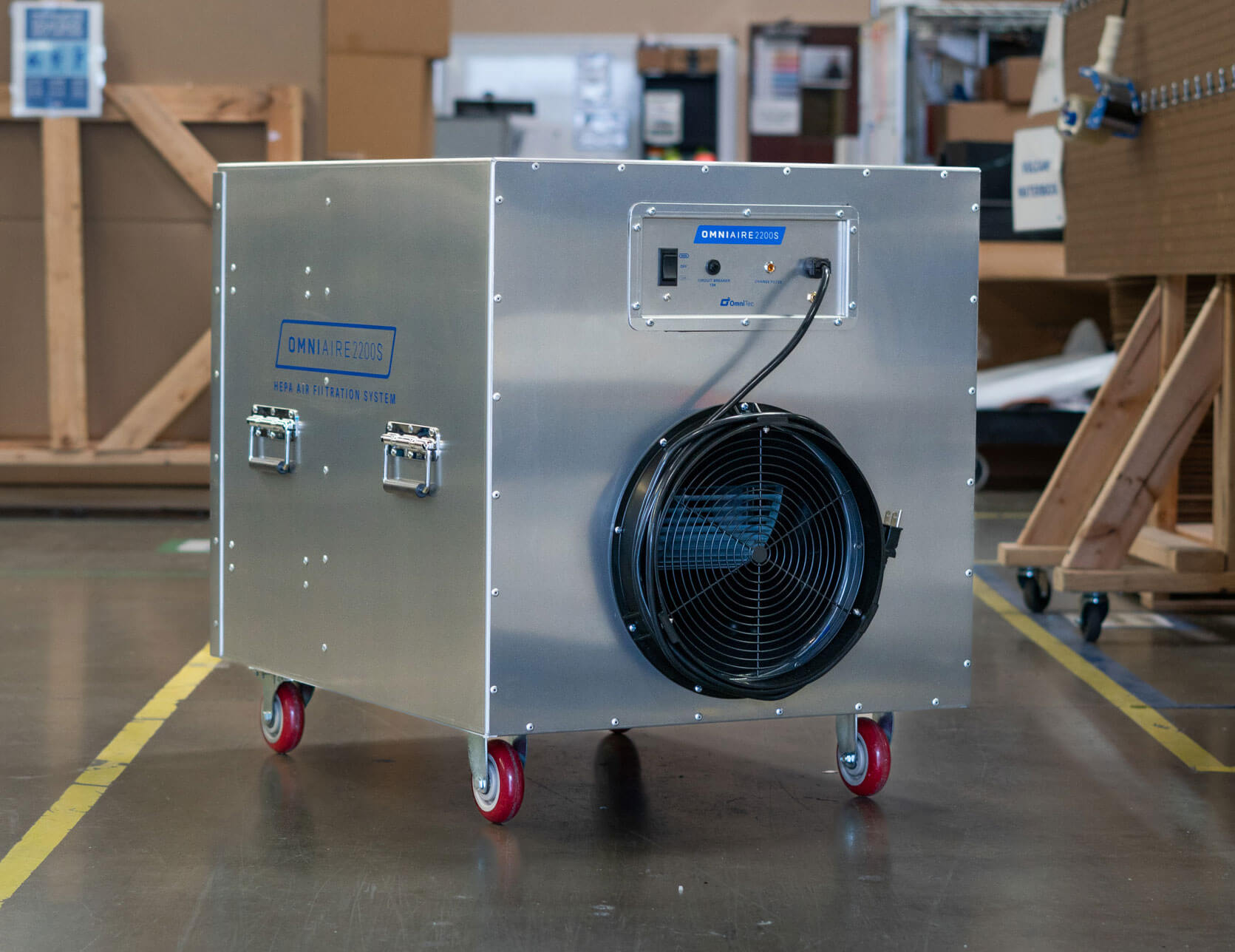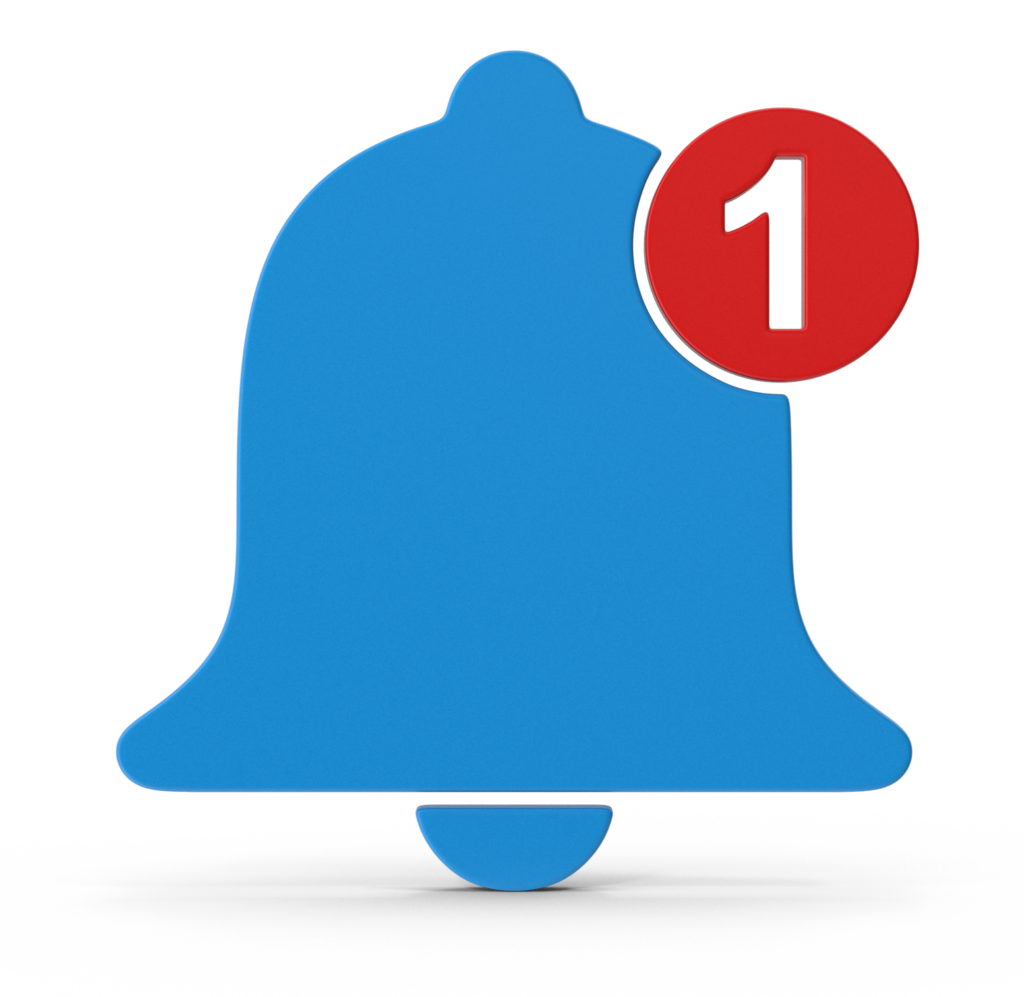Polypad, Carbon, HEPA Filter Replacement & Disposal
Safe & Environmentally Responsible Methods
Proper maintenance of negative air machines and air scrubbers starts with a solid filter replacement schedule. Over time, filters become saturated with the particles and chemicals they’re designed to intercept. If the filters are not changed regularly, the capacity (volume) of air being treated can drop precipitously or dangerous particles and VOCs (Volatile Organic Compounds) may pass through the machine and return to the work area. In either case, this can pose a risk to workers and occupants.
When HEPA Filters become saturated with particulates, their ability to mitigate hazards diminishes considerably.
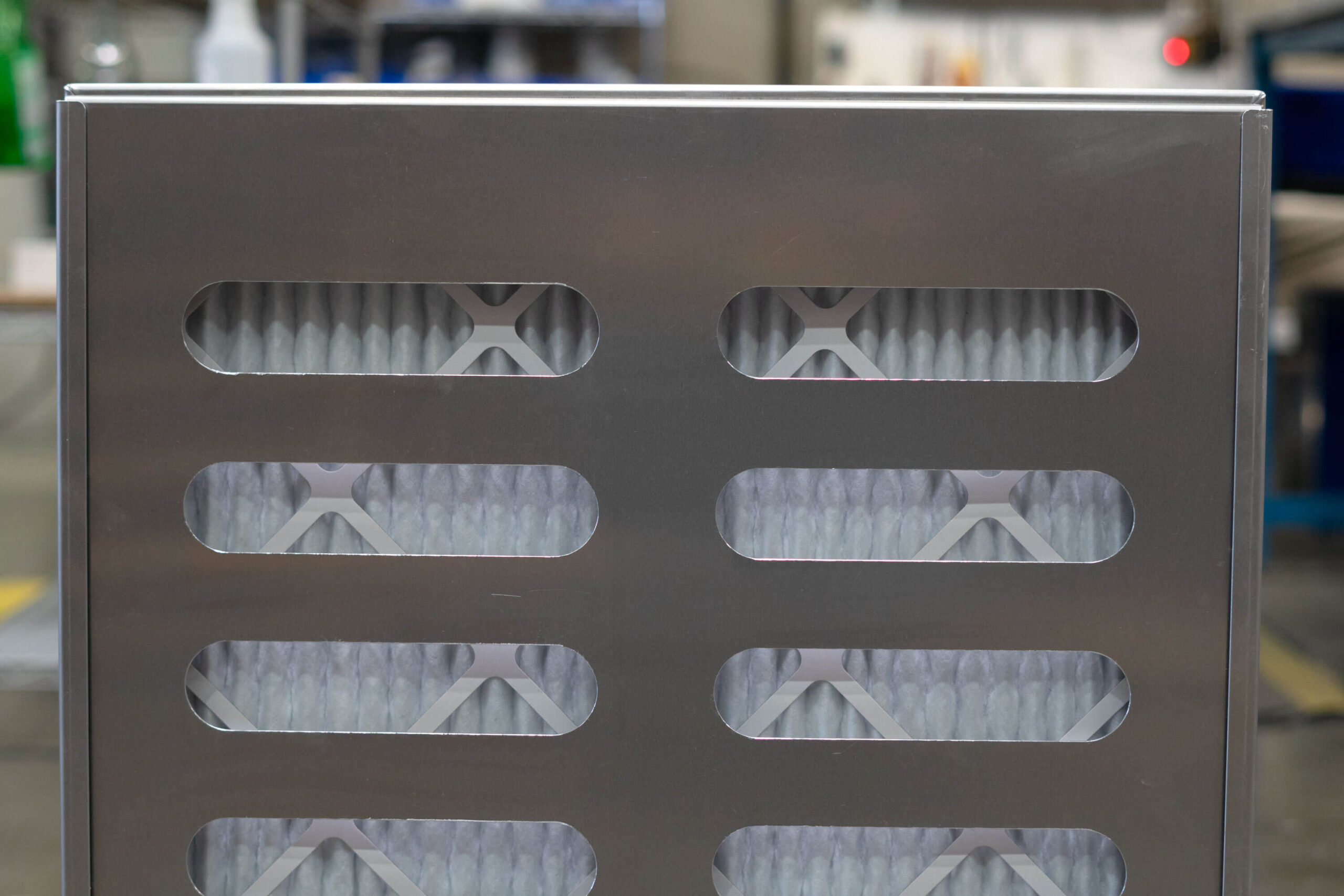
Safety is our priority
Omni CleanAir Negative Air Machines, Air Scrubbers, Portable Air Cleaners & Commercial Air Purifiers are designed to notify users when HEPA filter replacement is required, supporting compliant working conditions at all times.
- Filters are generally accessible from the rear or top of the machines and can include the primary HEPA filter or carbon filter as well as secondary poly pad, pleated, and carbon filters.
- Minimal tools are required for removal and replacement in most Omni CleanAir Machines.
- Filter doors, screens or access panels are easily removed.
- Filters conveniently slide into or out of the housing once the filter tabs are loosened or removed from the housing. When replacing filters, close attention should be paid to the direction of airflow and any gaskets or seals that must be mated to the housing to ensure a good seal (so all air being pushed or pulled through the machine will pass through the HEPA Filter).
- Omni CleanAir branded HEPA filters are 99.97% or 99.99% efficient at removing 0.3 micron sized particles. HEPA filters come in standard and high capacity models depending on treated airflow volume requirements (measured in CFM or cubic feet per minute of filtered airflow).
- Most Omni CleanAir machines have a change filter light or a static pressure gauge which will clearly indicate when HEPA filter replacement is required.
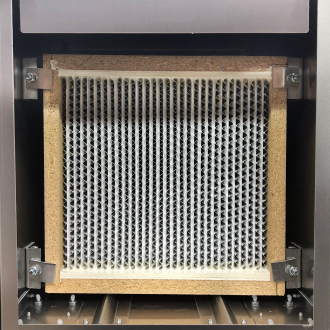
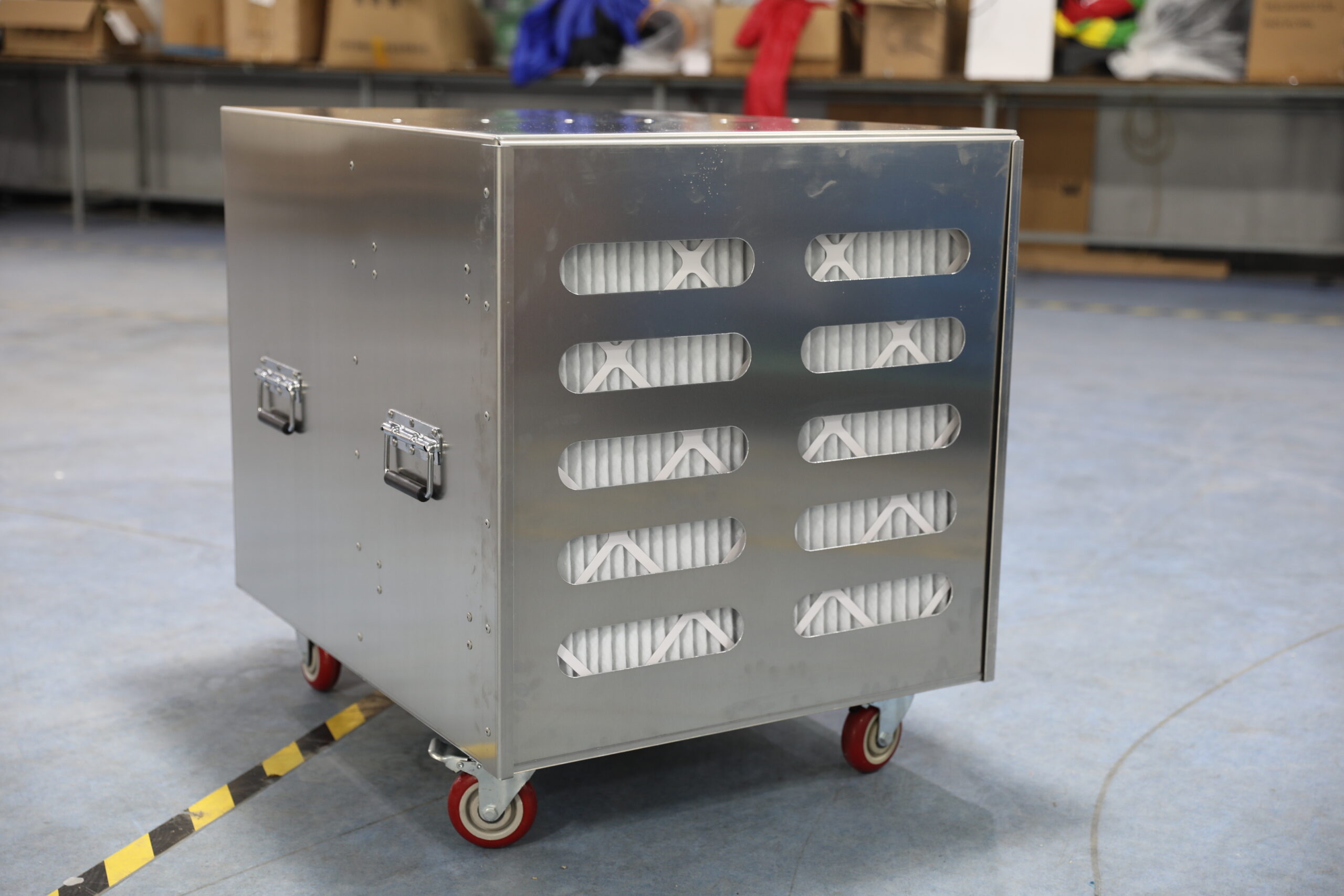
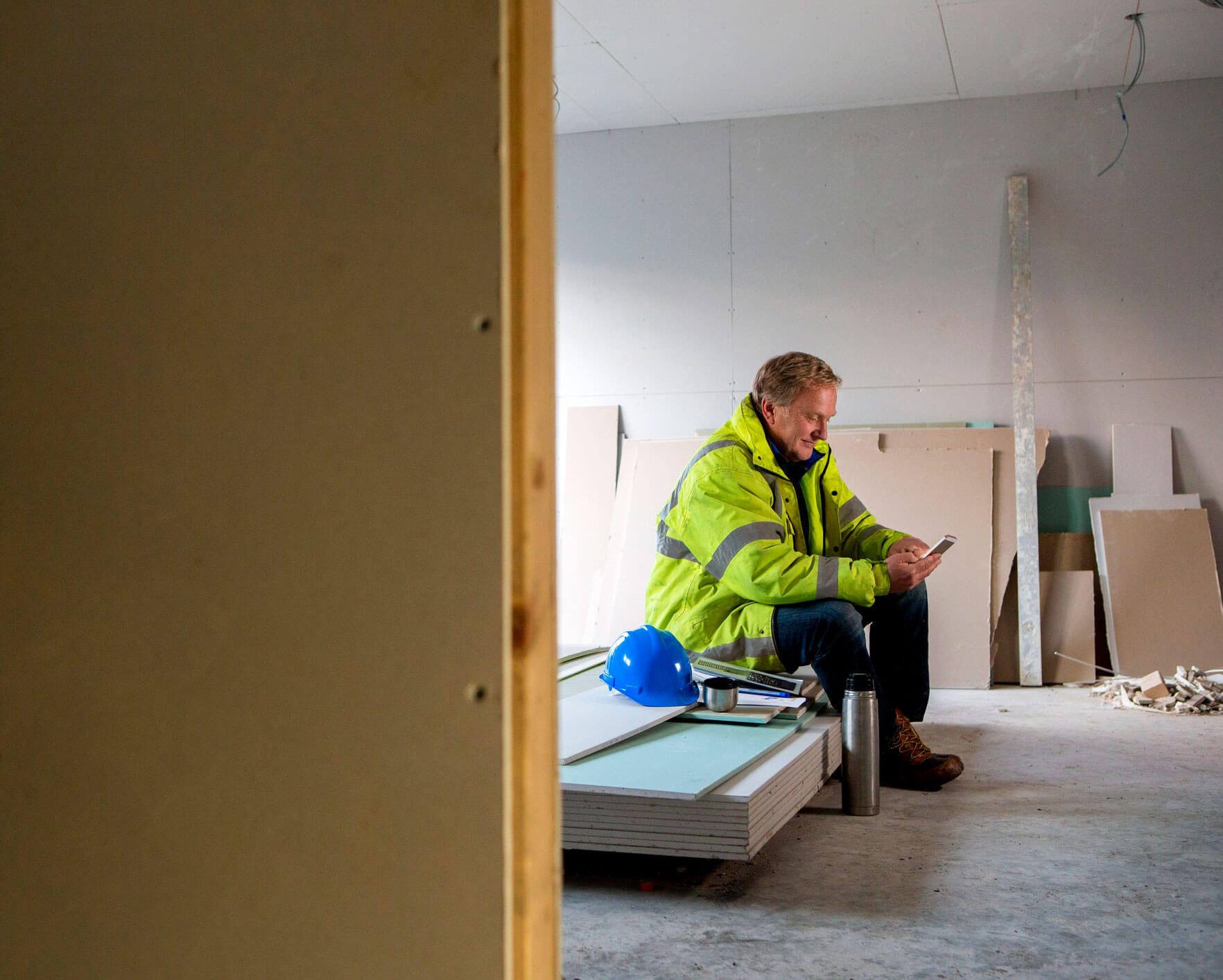
Proper Disposal of Used Filters
In general, while used carbon filters, HEPA filters and other secondary filters can be disposed of in approved landfills, it is important to check with your environmental, health and safety representative in advance of filter disposal.
Filters that may contain biologic materials and contaminants which may require more careful handling.
- Local codes may also determine how your used filters should be disposed.
- Local waste management and/or biomedical waste service providers can also be contacted.
- In some rare cases, autoclaving may be required before removing filters from a facility.
TrueCFM™ Approved
Omni CleanAir HEPA filters are TrueCFM™ compliant for use with Omni CleanAir machines to ensure maximum filtration capacity will be achieved throughout the life of the HEPA.
